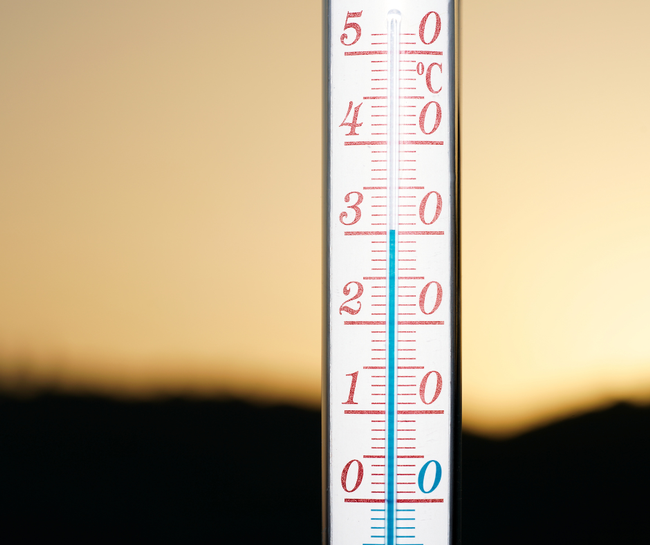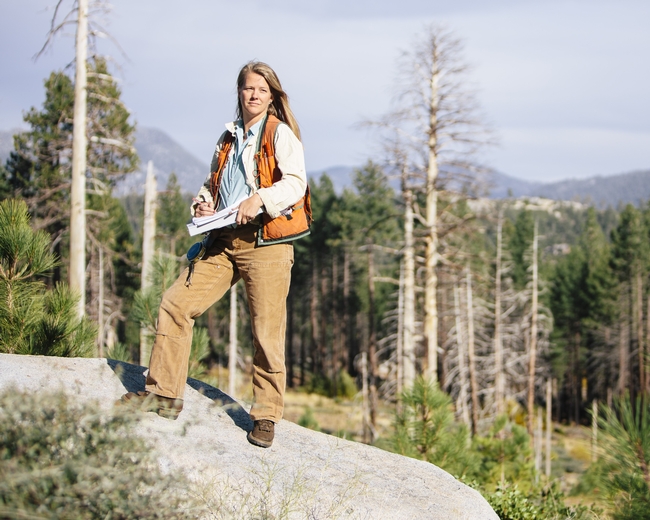September is National Preparedness Month, designated to encourage disaster and emergency readiness. To help Californians prepare for extreme heat, earthquakes, public safety power shutoffs and wildfire, University of California Cooperative Extension has created a disaster preparedness website organized for quick access to critical information.
The website https://ucanr.edu/Disaster contains fact sheets with tips for getting prepared.
“Unfortunately, with a warming climate, we are facing more and more extreme climate-related events such as heat waves, wildfires, power shutoffs and storms. All Californians need to step up their preparedness efforts to be ready to meet this more uncertain future,” said Susan Kocher, UC Cooperative Extension forestry advisor, who co-authored the disaster preparedness resources for the website.
Extreme heat
The fact sheet for extreme heat events offers suggestions for avoiding heat exposure, such as identifying nearby cooling centers and covering windows to keep heat out. It also suggests things to do during hot weather such as staying hydrated, taking cool showers and keeping pets indoors. It describes symptoms of heat-related illnesses, which can have serious health effects.
Public Safety Power Shutoff
During extreme weather events, electrical power in high fire-threat areas may be shut off to prevent sparking. This precaution is known as a Public Safety Power Shutoff. A PSPS is most likely to occur from May to November, when conditions are the hottest and driest.
UC Cooperative Extension recommends signing up to receive PSPS alerts from your energy company. Experts also advise making a plan for medications that need to be refrigerated or medical devices that require power. To prevent foodborne illness, they offer suggestions for ensuring food safety during and after a power outage.
Wildfire and smoke
Wildfire smoke can harm your health. During wildfires, UC Cooperative Extension recommends wearing an N95 outdoors to reduce smoke exposure and taking steps to prevent smoke from entering buildings. To reduce wildfire risk, the website describes methods of removing flammable vegetation around homes.
Earthquakes
UC Cooperative Extension offers safety tips for before, during and after an earthquake. Identifying the safest place in your home during an earthquake in advance is helpful. For example, doorways are not the safest place to be in modern homes. Experts recommend crawling under a sturdy desk or table, while avoiding areas next to windows, beneath ceiling fixtures or near large items that may fall during an earthquake.
The website also offers resources on drought, food safety after a fire, and wildfire preparedness and recovery.
In 2020 and 2021, Cooperative Extension researchers from around the country held listening sessions with community members who had experienced extreme weather events and other types of disasters to learn what had worked well, what had not, and how communities could be strengthened.
In response, these disaster resources were developed by Kocher, UC Davis undergraduate student Caydee Schweitzer, Tracy Schohr, UC Cooperative Extension livestock and natural resource advisor, and Vikram Koundinya, UC Cooperative Extension evaluation specialist. The group plans to add fact sheets on more disaster topics in the future.
This project was funded by a USDA National Institute of Food and Agriculture Renewable Resources Extension Act grant.
MEDIA CONTACT: Susan Kocher, UC Cooperative Extension forestry advisor, sdkocher@ucanr.edu


